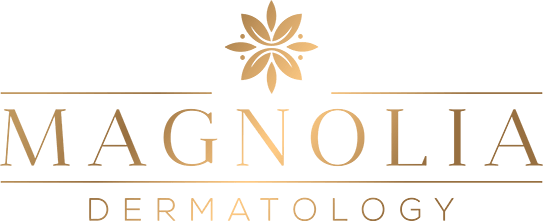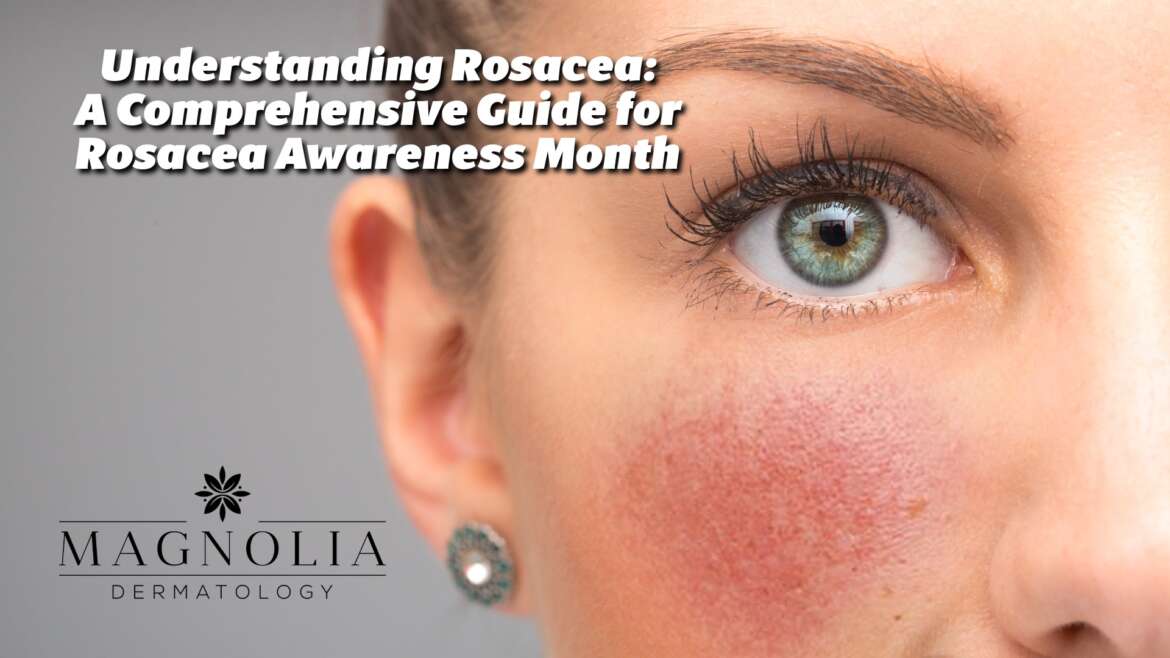April is Rosacea Awareness Month, a time to increase awareness about this common skin condition. Magnolia Dermatology is committed to educating our patients and the public about rosacea, including its impact on those affected and the treatment options available.
During Rosacea Awareness Month, we aim to de-stigmatize the condition and encourage those experiencing symptoms to seek medical advice. Early diagnosis and treatment can significantly improve the quality of life for those with rosacea.
What is Rosacea?
Rosacea is a chronic, inflammatory skin condition that primarily affects the face. It is characterized by redness, visible blood vessels, and sometimes small, red, pus-filled bumps. These symptoms can flare up for periods of weeks to months before diminishing again. Rosacea is often mistaken for acne, eczema, or a skin allergy. The exact cause of rosacea is unknown, but it may be a combination of hereditary and environmental factors. Triggers vary from person to person and can include sun exposure, stress, hot or cold weather, spicy foods, alcohol, and certain cosmetics.
How is Rosacea Diagnosed?
There is no specific test for diagnosing rosacea. Instead, healthcare providers, often dermatologists, rely on the history of symptoms and a physical examination of the skin. They may ask about potential triggers to help identify patterns in flare-ups. In some cases, tests might be done to rule out other conditions that can look similar, such as lupus or eczema.
How is Rosacea Treated?
While there is no cure for rosacea, treatments can control and reduce the signs and symptoms. The approach to treatment varies based on the severity and type of symptoms present. Options include topical medications to reduce redness and inflammation, oral antibiotics for their anti-inflammatory properties, and lifestyle changes to avoid known triggers.
Managing rosacea often involves a combination of medical treatment and self-care measures. Patients are encouraged to keep a symptom diary to help identify and avoid triggers. Sun protection with broad-spectrum sunscreen is essential to prevent flare-ups triggered by sunlight.
Support Groups and Resources
Connecting with others who understand what you’re going through can be incredibly beneficial. Here are some resources and support groups for individuals with rosacea:
– The National Rosacea Society (NRS): Offers comprehensive information, support, and resources for those affected by rosacea.
– Rosacea Support Group: An online community where individuals with rosacea can share experiences, treatment success stories, and coping strategies.
– Skin Health Alliance: Provides educational resources and support for various skin conditions, including rosacea.
Rosacea can be a challenging condition, but with the right approach, it can be managed effectively. If you suspect you have rosacea, consider scheduling an appointment with a dermatologist at Magnolia Dermatology. During Rosacea Awareness Month, let’s spread the word and support those dealing with this condition, ensuring they receive the care and understanding they deserve.

